When you are raising chickens, one of the main concerns is keeping your chickens healthy. Of course, one key point in that is keeping them safe from potential predators. In order to do this, you need to know exactly how to create a predator proof chicken coop and run.
13 Ways to Predator Proof Your Chicken Coop and Run
- Livestock Guard Dogs
- Keep Roosters
- Lock Them up at Night
- Encourage Crows
- Keep Eggs & Feed Cleaned Up
- Electric Fencing
- Hiding Spots
- Raised Coop
- Solid Floor
- Hardware Cloth Apron
- Secure Windows
- Top on Chicken Run
- Apron on Chicken Run

If you implement several (or even all) of these 13 tips, you are well on your way to a very secure chicken area that will significantly help to keep your flock more secure.
To learn all the details about each of these steps, keep reading for more.
General Ways To keep Your Chickens Safe
In addition to specific features or changes you can add to your chicken coop or chicken run, there are also several things you can do with your flock, in general, that will help keep them safe from predators.
Livestock Guard Dogs
Livestock Guard Dogs like Karakachans and Great Pyrenees are dogs that are specifically bred to protect livestock and chickens. While they do need some serious training efforts when they are young, a well trained livestock guard dog can make a huge difference for your chickens.
Our dogs have chased off a huge range of animals from fox to bears to hawks. In fact, the mere presence of these dogs can often times keep predators away from your general area.
Keep Roosters
While roosters may not be as large and impactful as livestock guard dogs, they do certainly add some predator proofing for your chickens. Roosters will usually do their best to fend off predators that try to come into their area. So even though roosters don't lay eggs, you may want them for other reasons.
Depending on the predator, a rooster may not be enough. However, we have had roosters fight hard to keep their hens protected. And, sometimes this is enough to chase the predators away. Having roosters around also can help alert you to any potential danger since they will make a racket when something of danger comes into their area.
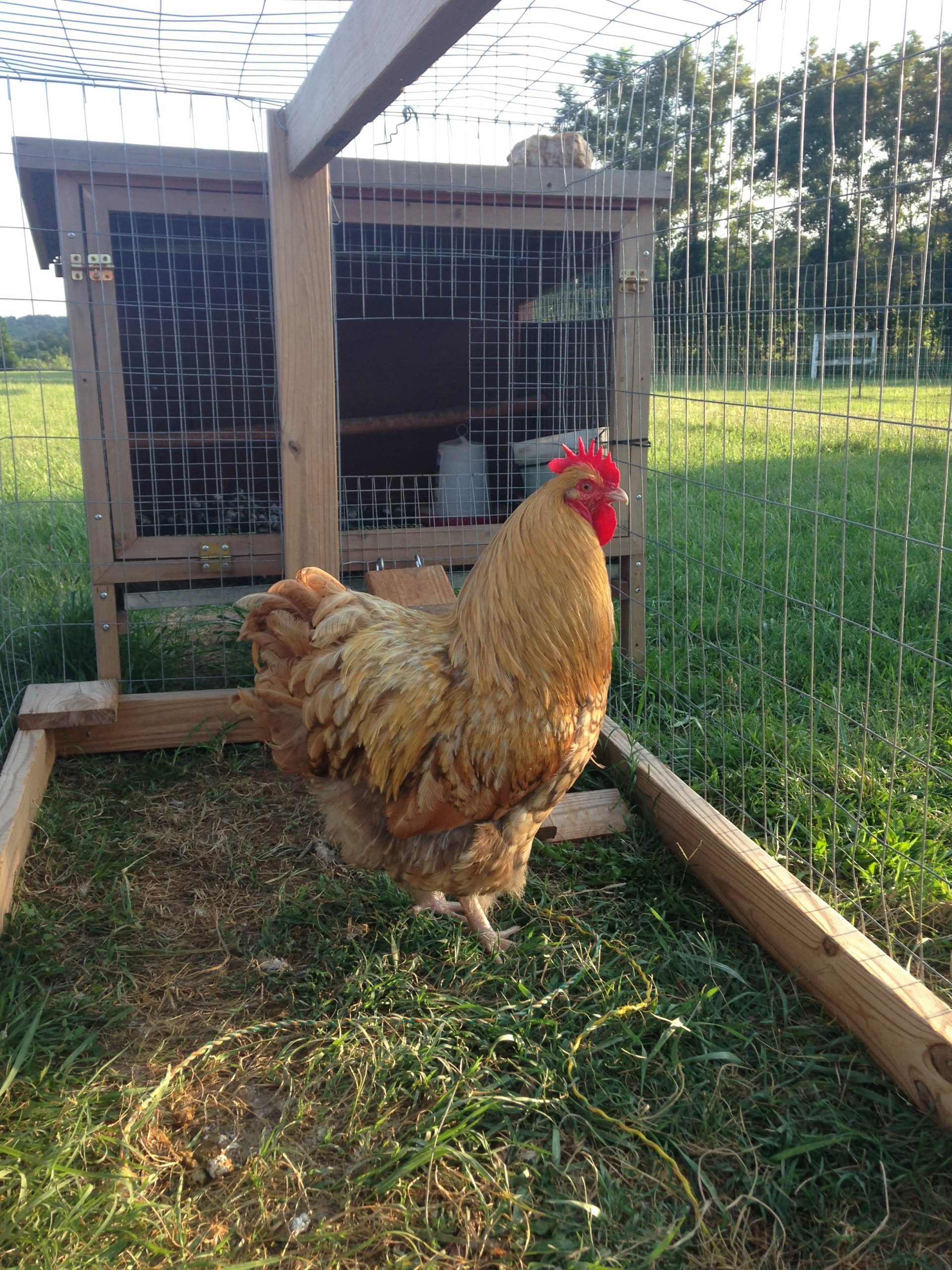
Lock them up at night
Whether you keep your chickens confined to a run or let them free range, you should lock them in their coop at night. Chickens will typically put themselves up into their coop around sunset anyway, but if you leave the windows and doors wide open it is an open invitation to predators.
So, make sure every night around sunset that you head out to your coop and lock things down.
Encourage Crows
Crows actually do not like hawks. We have experienced this first hand, in fact. We have a few crows every year that nest in some large pine trees at the edge of our property. These crows are NOT happy if hawks every come around. Hawks will steal crows eggs and chicks so crows will do whatever it takes to keep them out of their area.
This, of course, greatly benefits chickens because they can help keep hawks away. But, also, crows are very unlikely to prey on chickens or chicks themselves, so having them around is not typically a threat to your chickens.
Keeps Eggs & Feed Cleaned Up
One surefire way to encourage predators to come around and bother your chickens is by leaving potential food around for them. This can be eggs or chicken feed.
So, be sure to collect all eggs regularly and also do not leave feed out overnight if possible. We like to ferment chicken feed which also means that there isn’t feed left sitting out between feedings which is a bonus benefit.
Electric Fence
While electric fencing may not be a solve for all potential predators, it is one way to predator proof against some of the larger predators that might go after your chickens.
Electric fencing can be pretty easy to set up and it is not terribly expensive. So, it might be a good add especially if you have a heavy predator load in your area.
Places to Hide if free range
If you free range your chickens, you might want to ensure that your chickens have plenty of places to hide if need be. This is particularly useful if you have hawks around, since your chickens can have a place to run and duck under or into if they have something coming down from above.
Predator Proof Your Chicken Coop
Now that you know some of the main things you can do to keep your flock safe from predators in general, let’s review how to predator proof your chicken coop specifically.
Chicken coop plans come in all types of sizes and designs. Frankly, you can be as creative as you want when it comes to your coop. But, you should be adding in the following features to help keep your chicken coop predator proofed.
These specifications are best used to help protect against predators like coyotes, raccoons, possums and fox.
Protect from digging
Many of the predator types just mentioned above will actively try to get into your coops for an easy snack, especially at night. So, it is really important to ensure that they cannot just dig underneath the coop and grab your chickens.
And trust me, they WILL try to dig in to grab them if they can.
- Raised coop - Keep your coop raised up off the ground. It doesn’t need to be super high off the ground. However, just raised enough that a predator cannot dig under and straight grab your chickens.
- Solid Floor - Make sure that your coop has a solid floor. You don’t want the floor of their coop to be any kind of wire (which predators WILL try to pull your chickens through. You also don’t want your coop floor to just be on the ground.
- Hardware Cloth apron - We use either chicken wire or hardware cloth and make an apron from the bottom of the coop into the ground. First, dig a trench around the coop about 6 inches down and about a foot out. Then, simply tack the wire up onto the bottom part of the coop a few inches up and then lay it down into your trench and bury it with dirt. This will help deter digging as predators will start digging, hit the fencing and often times give up.
Secure Windows
If you are going to be locking your chickens up at night, you want to make sure that the windows in your chicken coop are good and secure so that no predators can sneak in that way. The best way to do this is to have windows that actually just close and latch.
However, you can also add hardware cloth or a double layer of chicken wire over windows to help keep predators from climbing through them. You can add the wire in addition to a window that closes or instead of it.
Predator Proof Your Chicken Run
Now that you have a safe, secure, predator proof chicken coop, let’s make sure that you also have a predator proof chicken run.
High Chicken Wire
There are several different ways to make a chicken run, you can have one that is relatively small and moveable and attaches to your coop. Or you can have a large, permanent area. If you have a larger permanent area, you should use 5 or 6 feet tall chicken wire for the sides of the run.
While a really motivated predator can probably climb this or break through it if they REALLY wanted to, it can definitely help provide some protection. In fact, before we started free ranging our flock, we had a large enclosed run area like this and had coyotes come around a few times and pace the outside, but eventually gave up since they couldn’t find an easy way in.
Put a top on it
If you want to avoid overhead chicken predators like hawks as well as climbers like raccoons, but a top on your run. By putting a section of chicken wire or hardware cloth (even bird netting can work if you are just protecting from birds) on the top of your run area, it will help keep anything from coming in from the top of your run fencing.
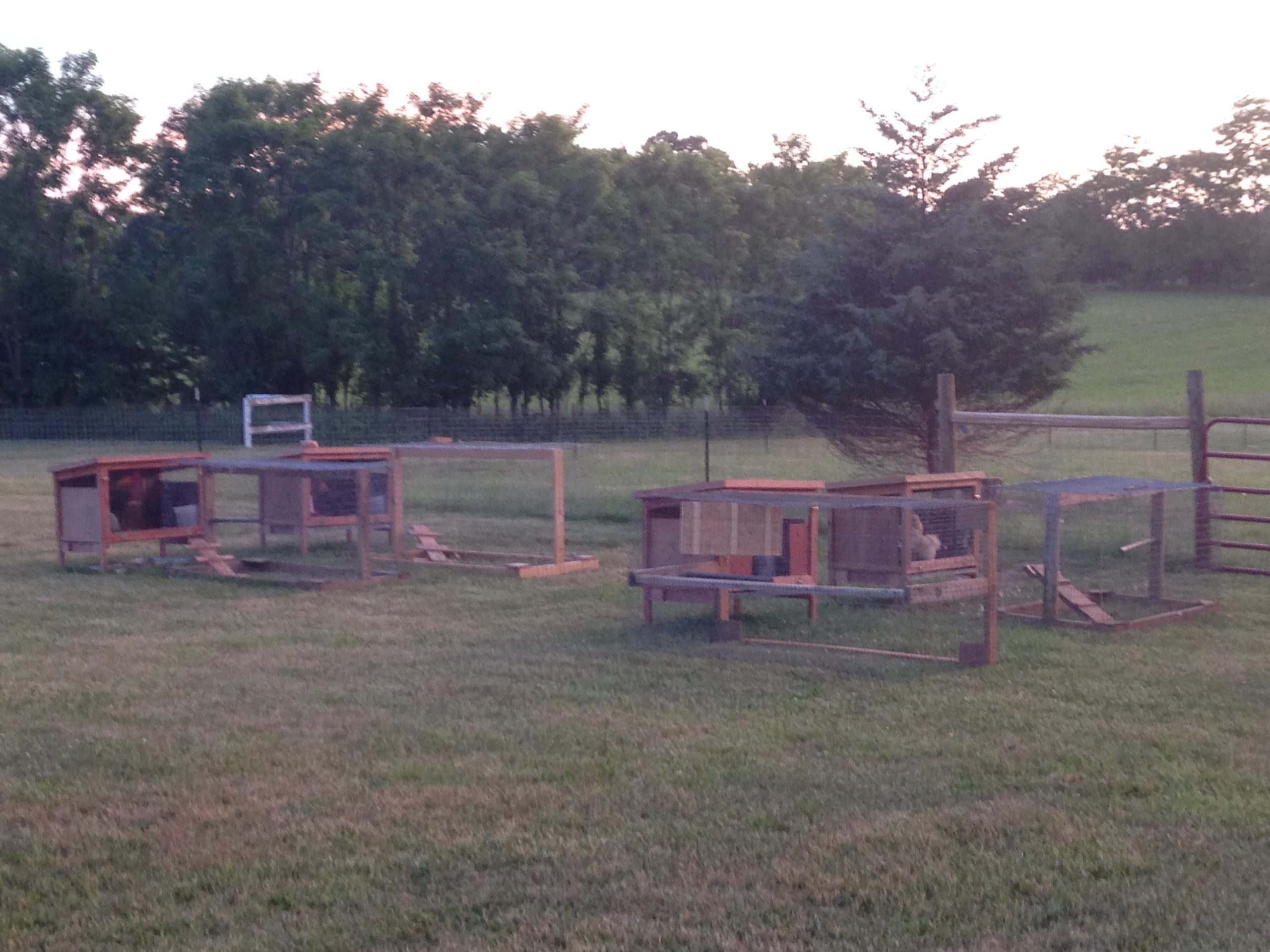
Add an apron
Much like you added an apron around the bottom of your chicken coop, you should absolutely do the same around your chicken run. Since you won’t have a solid coop to attach the wire to, we usually use zip ties to attach the wire several inches up on the run fencing and then dig down and out and bury the remaining section of fencing to create the apron.
FAQ
What is the best animal to protect chickens?
The best animal to protect chickens is a well trained livestock guard dog. You can use other livestock protectors like guard donkeys or guard llamas, but at the end of the day a guard dog is the most efficient protector.
Will poultry netting keep predators out?
Poultry netting will keep predators like hawks out, but is less successful in keeping predators like raccoons out (they can cut through the netting).
Can a racoon get through chicken wire?
Yes, raccoons can get through chicken wire. Use a double layer of chicken wire or thicker hardware cloth to get better protection.
Can foxes get through chicken wire?
Yes, fox can climb over, dig under, and go through chicken wire when they are motivated. It is best to use double chicken wire or hardware cloth similar to what is used to protect against raccoons.
Do roosters keep predators away?
Yes, roosters can help keep predators away. However, at the end of the day, roosters may struggle to defend against predators that are larger than they are.
If you need more help with taking care of your chickens, check out The Organized Chicken Keeper for a complete system for managing their health through keeping their supplies stocked and coop clean.

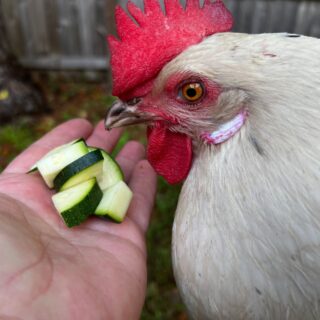

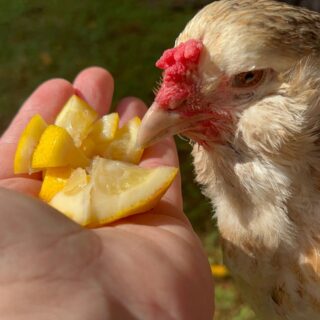
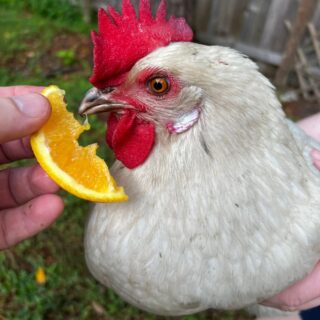
Slider Samii says
I made sure we have lots of cover available for the girls to dive under to avoid attack. There have been multiple attempts by hawks to dive bomb the girls and having cover using plants, in whatever form works for the location, with room underneath has been the secure panic area(s) many times. Using citrus, roses, grape, pomegranate pruned to allow free movement below with structure above to protect along with small structures to cover or shade and feed / water make for safe haven when predators come looking. I love all types of critters and just trying to make the best arrangement to accommodate them all is a tough task but doable if given a little thought and some creative effort.
MrAnimal Farm says
Hi,
This is a great idea and addition for helping keep your flock safe from predators! Thanks for the ideas! 🙂